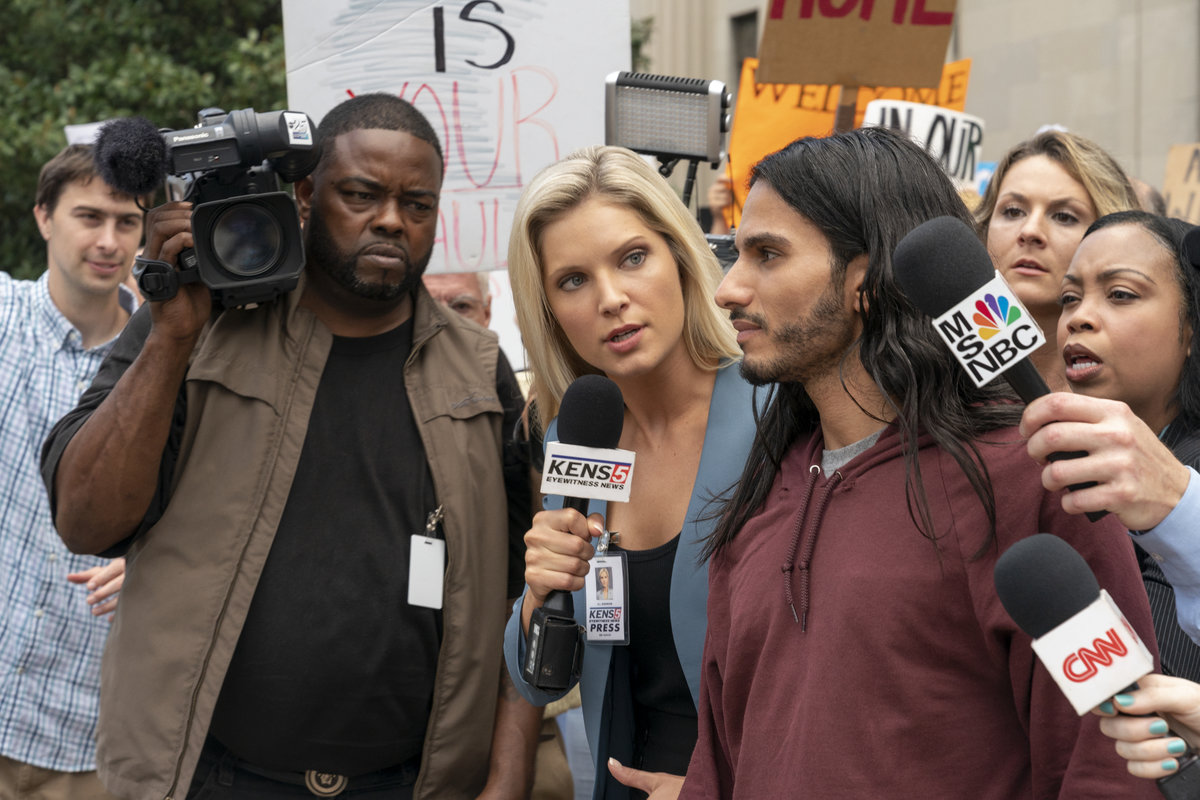

The 10-part Netflix drama The Messiah centres on a beguiling religious figure in the contemporary Middle East who claims to speak for God and appears to work miracles.
With the action alternating between the marvellous acts of “Al-Masih” and efforts by various world governmental intelligence agencies to “contain” or explain away his work, the obvious question arises: is Al-Masih the real deal? Is he God’s anointed returned in the flesh? Is he only – or, more complicatedly, also – a political subversive, psychiatric patient, and former street hustler?
Such an interesting premise, however, ultimately proves less interesting than the questions it leaves unresolved. And despite strong performances, the drama is slow and underpowered, with the enduring interest between episodes resting in its unrelenting ambiguity.
After leading a group of refugees through the Syrian desert, for instance, Al-Masih almost spontaneously shows up outside a south Texas church, which he appears to save from an approaching tornado. However, there are also reports of a private jet having arrived in the area, raising questions about Al-Masih’s arrival and whether the tornado may have diverted naturally.
Each tick in the column supporting confirmed miracles is countered by a hint at deep-cover chicanery, and enough evidence amounts on either side to satisfy the diehard skeptic and believer alike.
Yet few, if any, of the characters take a stand on any kind of philosophical middle ground. Al-Masih polarizes, and for good reason. If God were making himself this evident in the world, it would seem odd to remain indifferent. Which raises some intriguing questions.
If these events were to truly happen, how should Christians respond?
When Christ returns, we tend to believe, it will be in glory and impossible to mistake: all humanity, living and dead, will acknowledge him, with a sense of either crushing or ecstatic certainty.
But when he came the first time, as the Gospels relate, it was difficult for many to tell. This despite the evidence, these same texts tell us, of his many public and marvellous deeds.
Is this not crazy? After having seen a man walk on water, heal the blind, and raise several individuals (himself included) from the dead, who could possibly doubt? Yet seeing, it would seem, is not believing. Rather, Christian tradition implies, it is belief that shapes what we see.
Jesus illustrates this principle in Luke’s Gospel with the story about a rich man who ends up in hell after neglecting the poor man Lazarus at his gates. From his torment, the rich man begs for an angel to warn his still living brothers. But the response from Abraham is chilling: if they are not prepared in advance to heed the moral law, a supernatural apparition would make no difference.
The Eucharist, medical miracles, the “everyday miracles” of life itself, and the ongoing existence of what poet E.E. Cummings calls “the gay great happening illimitably earth” – all of these might point beyond themselves as “evidence” of divinity; or they might not, depending upon the viewer.
So, if believing shapes our seeing, what do you believe?
The raising of this question is the most interesting thing about The Messiah, and in the end each viewer must answer it for herself – that is, if they manage to stay interested that long.
(Originally published in The B.C. Catholic)
